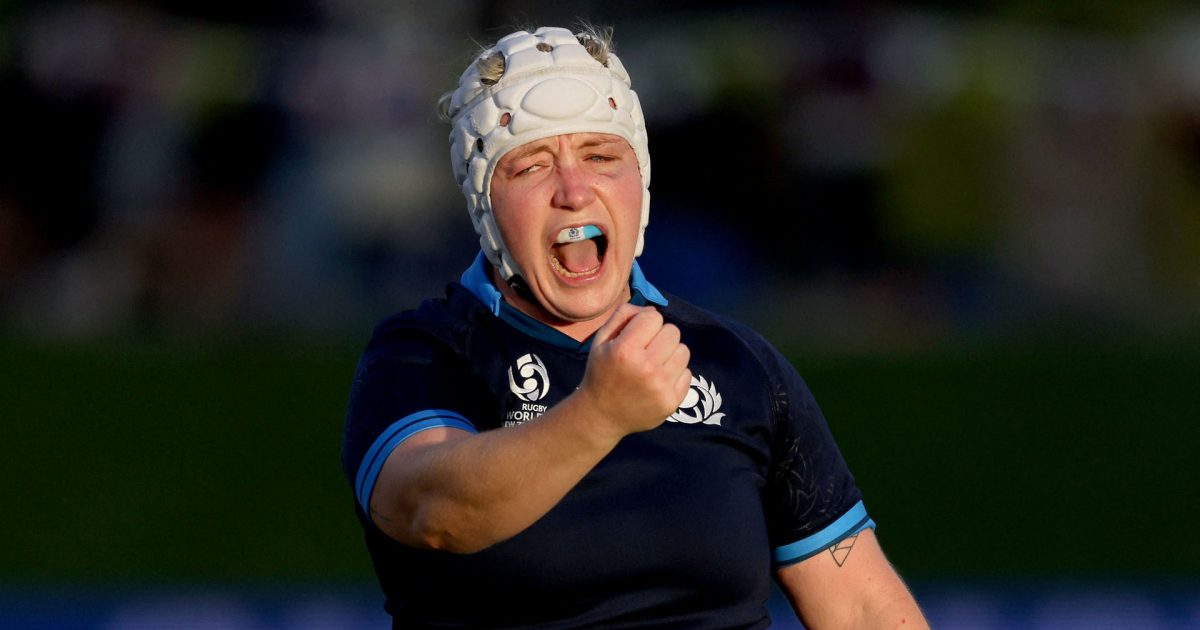L'Écosse double l'Italie

Du festin à volonté au régime sec. Le changement d’ambiance a été brutal, ce samedi, entre les deux matchs du Tournoi des Six Nations programmés ce jour.
Alors que l’Angleterre a passé 14 essais à l’Irlande, en début d’après-midi (88-10), l’Italie et l’Écosse ont disputé, sous le soleil parmesan, un match beaucoup plus fermé, plus indécis aussi.
Et au final, ce sont les Écossaises qui ont raflé la mise, 10-17, signant un deuxième succès dans ce Tournoi 2024. Elles doublent ainsi les Italiennes et grimpent sur le podium provisoire, alors qu’il reste une journée à disputer.
Il a fallu patienter plus de trente minutes avant de voir les premiers points de ce match. Dans leur volonté (louable) de jouer, les deux équipes choisissaient de ne pas prendre les points au pied.
Mais les pénaltouches, choisies systématiquement par les Italiennes comme par les Écossaises ont tout aussi systématiquement terminé en lancer perdu, ou en faute, avant d’apercevoir la ligne d’essai.
C’est finalement les Italiennes qui ouvraient enfin la marque. L’insaisissable Alyssa D’Incà profitait d’une jolie passe après contact de sa 3e ligne Arighetti pour prendre l’intervalle. Personne ne la reverra avant l’en-but (7-0, 33e).
L’Écosse a eu le mérite de revenir immédiatement au score, grâce à un cafouillage italien sur le renvoi causant une pénalité. Le maul derrière la pénaltouche, enfin productive, était conclu par la talonneuse Lana Skeldon (7-7, 35e).
On est ensuite retombé dans un faux rythme, les deux équipes se procurant peu d’occasions. Plus dangereuses en deuxième période, les Calédoniennes finissaient par trouver deux fois la faille autour de l’heure de jeu.
Avec tout d’abord un essai à zéro passe et zéro construction, Emma Orr profitant d’un ballon cafouillé par Aura Muzzo à la réception d’un coup de pied par-dessus la défense (7-12, 64e).
Puis elles convertissaient enfin un temps fort grâce à Chloe Rollie, qui débordait Beatrice Rigoni pour faire le break (7-17, 69e).
L’Italie revenait à un essai transformé suite à la pénalité réussie par Rigoni (10-17, 74e) et faisaient le forcing pour revenir. La défense écossaise tenait bien jusqu’à cette pénalité concédée au centre du terrain sur un déblayage mal maîtrisé de Rollie, exclue sur le coup (80e).
Il restait alors une quinzaine de secondes à jouer dans le temps réglementaire. Mais à l’image de la rencontre, cette dernière cartouche italienne se terminait par un en-avant, et on s’arrêtait là.




























